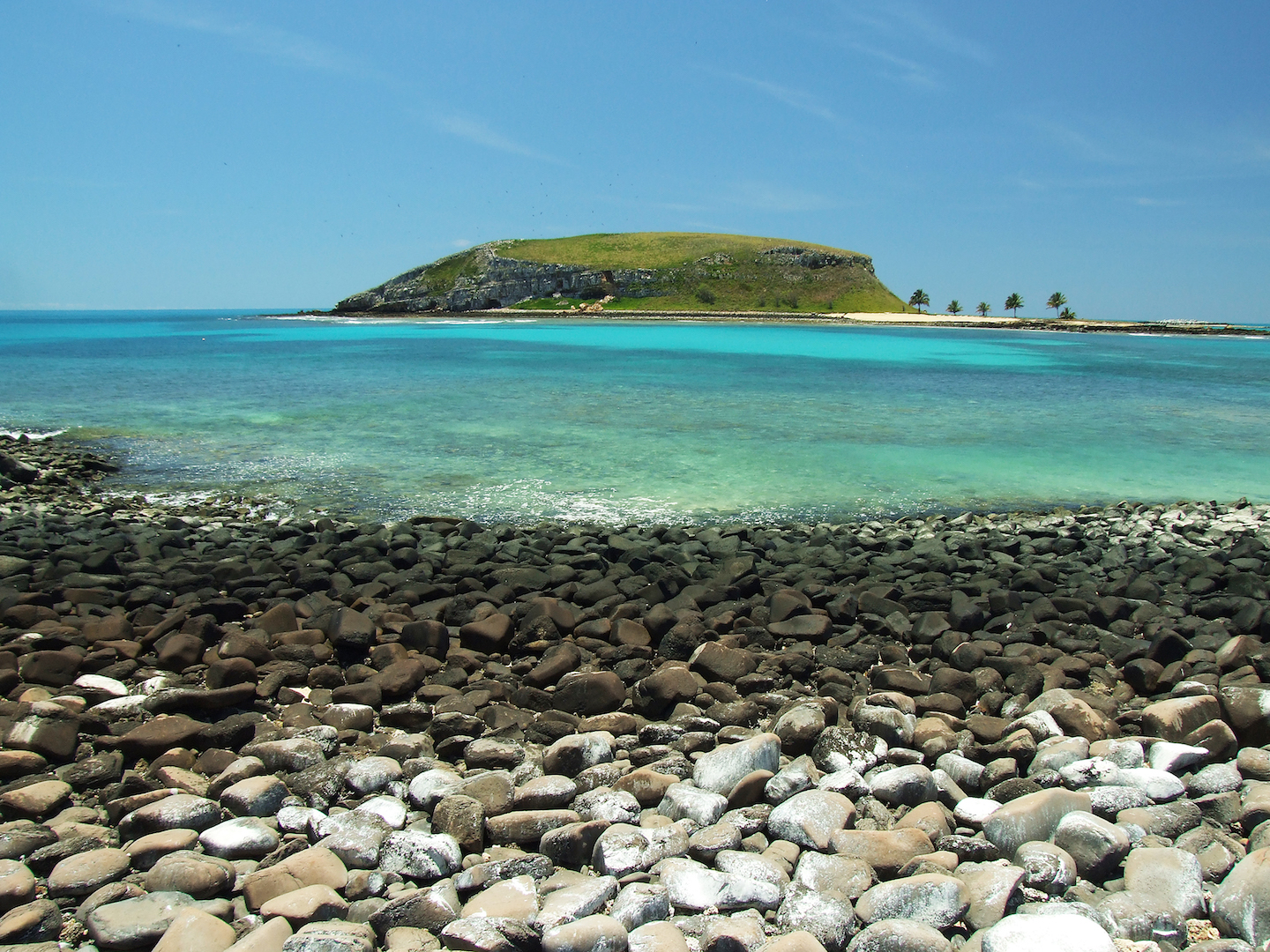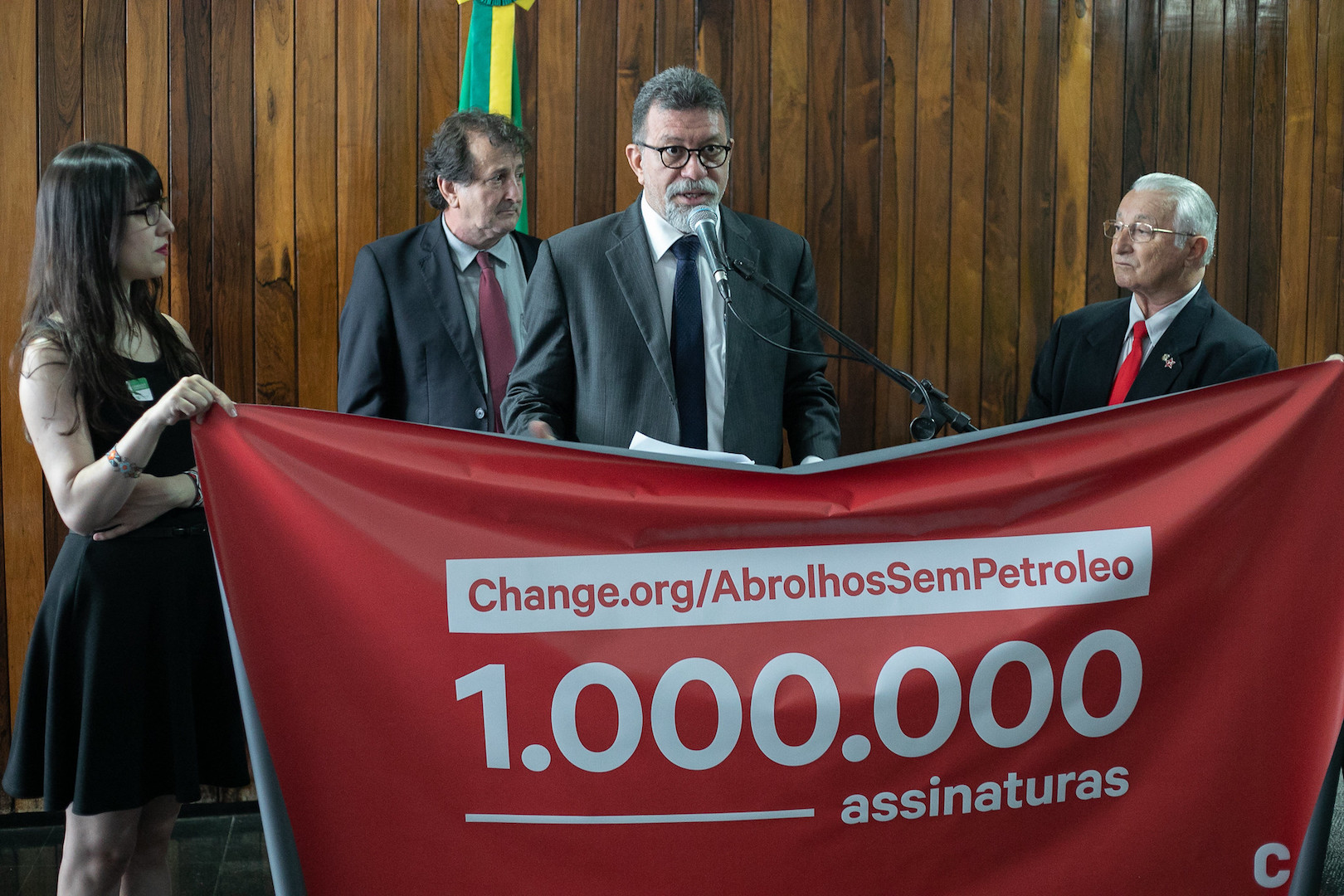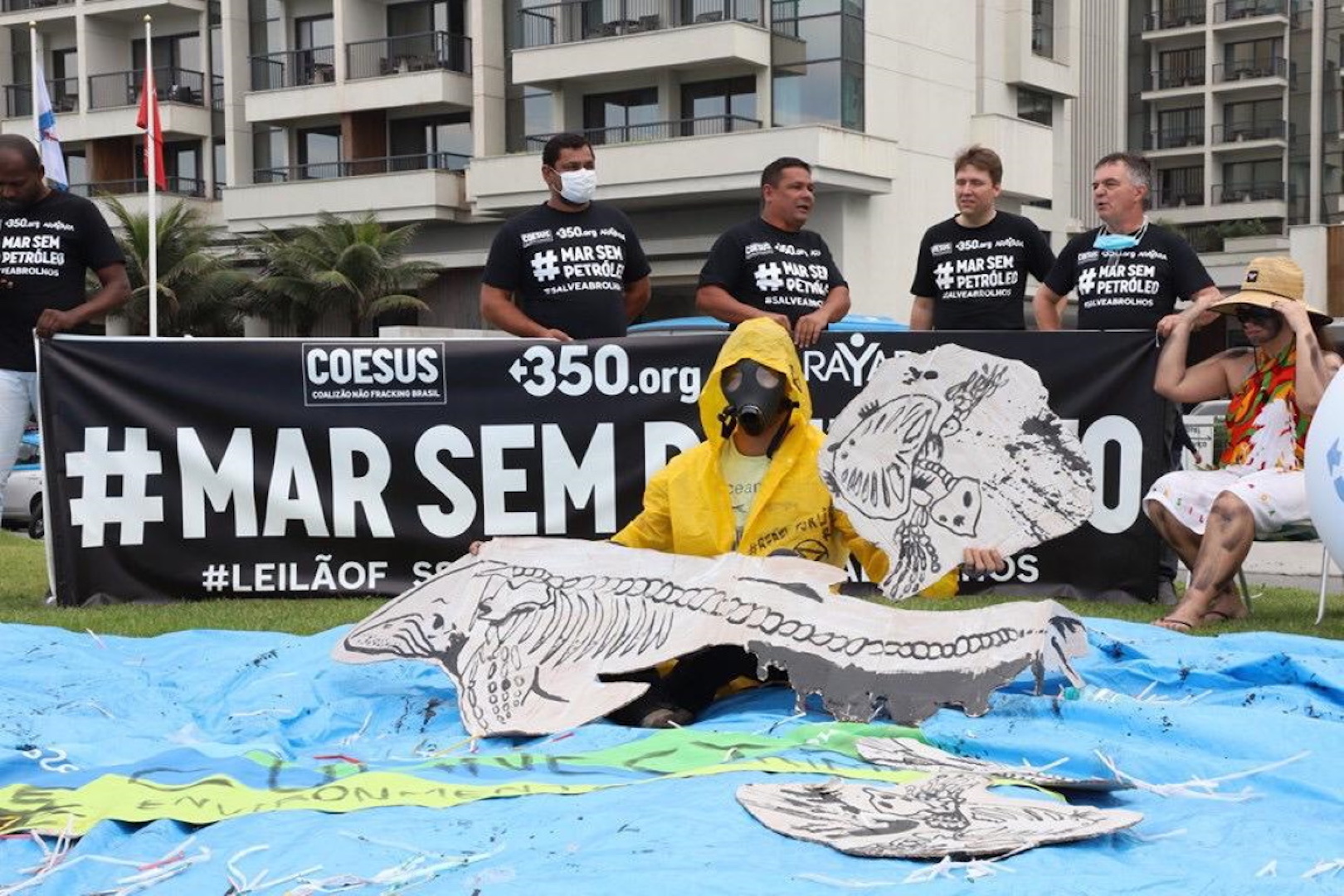SÃO PAULO, BRAZIL – Despite the apparent success of last week’s auction, organized by Brazil’s National Agency of Petroleum, Natural Gas and Biofuels (ANP), of the concession of 36 blocks for petroleum and gas exploration along the Brazilian coastline, environmental groups are celebrating that four of these blocs, along the Abrolhos coral reef area, did not receive any bids and were not auctioned off.

“The result of the auction shows that the sector understood that the risks involved in oil and gas exploration in sensitive maritime regions – such as Abrolhos – are not worth it,” said executive director of WWF-Brazil, Mauricio Voivodic.
Last week’s auction raised R$8.9 billion in signing bonuses, a record value in Brazil for exploration and production of oil and gas under the concession regime. Although only twelve of the 36 blocks offered were sold, the auction registered a 322% premium over the set prices.
Among the blocks that did not receive any bids were the Camamu-Almada and Jacuípe basins, whose auction was questioned by the Federal Prosecutor of Bahia and environmental groups for potential risks to the Abrolhos Marine National Park in case of leaks or accidents.
Along the Abrolhos Islands, Brazil created its first Marine National Park, in 1983. The demarcation of the area is designed to preserve the country’s largest marine biodiversity.
According to environmentalists, Abrolhos is home to over 1,300 marine species, 45 of them considered threatened, as well as a large area of coastal reefs, mangroves and archipelagos. The region is also home to humpback whales, as well as to endangered sea turtles.
There one may also find the largest and most complex coral environment in South America, according to the Brazilian Institute for Biodiversity Conservation (ICMBio).
To save this region environmentalists came out to protest on Thursday, in front of the hotel where the auction was held in Rio de Janeiro.
“Defending nature is fighting for the voiceless, the most vulnerable populations and fighting for our survival and future generations,” said environmentalist activist, Tamires Felipe Alcântara, who one day before the auction handed Congressional representatives and Brazil Public Prosecutor’s office a petition signed by more than 1.1 million against putting the blocs near Abrolhos in the bidding war.

“If there is an accident involving oil, biodiversity, traditional peoples and people living in tourism in the region will be badly affected,” added Alcantara during the presentation of the petition.
A few factors contributed to the lack of interest by petroleum companies. First, the government chose to ignore Ibama’s warnings and kept the blocks in the auction, without conducting the proper environmental studies.
Second, even if concession was given to a company to explore these areas, a ruling by the 21st Federal District Court early last week ruled that exploration of the blocks would have to wait for the completion of further environmental studies of the basin. If they were found unviable for exploration due to environmental damages which could incur, the winning company would not be able to explore it.
“If it is declared unfeasible, it will be declared unfeasible. It is unlucky for those who bought the lot,” said Environment Minister Ricardo Salles earlier this month.
Oil industry analyst, Adriano Pires, told the Associated Press that there was no interest in bidding for these lots because companies ‘didn’t want to get themselves in the middle of an environmental mess’.
Pires explained that investors believed that bidding for the areas near the Abrolhos Park would be a very high gamble due to doubts about the environmental approval for exploration. “The risk of spending money and not being able to exploit the region is very large,” he said.

Pires said that a similar situation occurred in the past, with foreign companies winning bids to explore areas which have yet to be given the go-ahead by environmental entities. Pires noted that French petroleum giant, Total, acquired the blocks in the northern state of Amapá in 2013, and since then has been battling to receive the necessary licenses to start drilling.
In December of 2018, Brazil’s Environmental Agency (Ibama) denied Total the environmental license to explore oil at the mouth of the Amazon River, alleging “technical problems” in the plan presented by the company. The company is said to be reviewing its project to adapt to the current environmental standards.
Environmentalists admit that although this first ‘battle’ was won, the ‘war’ against drilling in ecologically vulnerable regions is far from over.
“The good news is that the blocks near Abrolhos Marine Park did not receive an offer during the bidding. The bad news is that these blocks will be included in an ANP standing offer system,” said Alcântara.
The next petroleum and gas exploration auction is scheduled for November 6th.
“We will continue to defend Abrolhos and the environment. We cannot give up,” concluded the activist.

